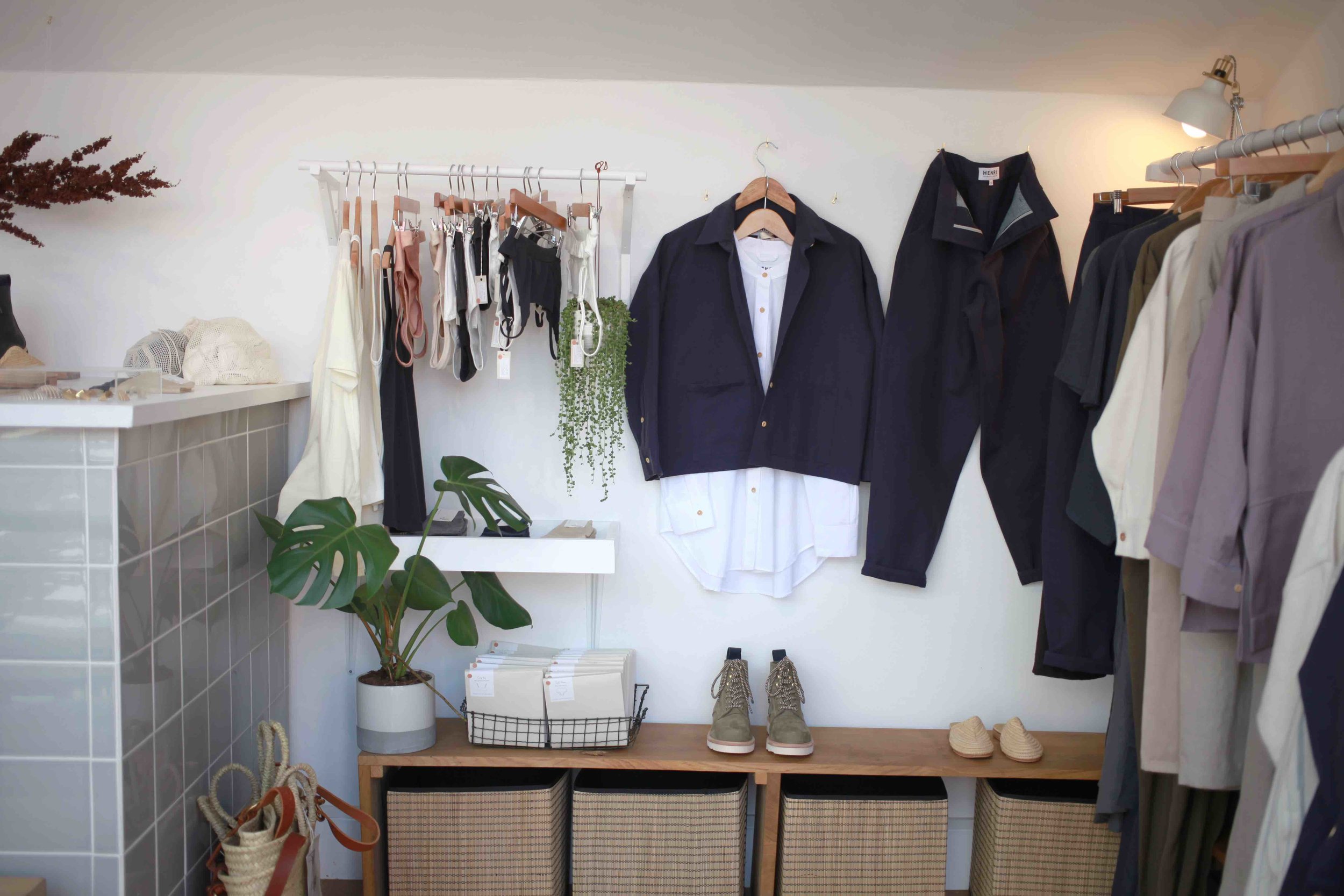Henri London: ethical shirts
Henri’s Bethnal Green Road store is tiny and full of light. Picture: Henri.
By BEL JACOBS
The path for young designers is not so clear any more. Not everyone is Alexander McQueen; not everyone can afford to run their own brand. But for young artists passionate about sustainability, options are growing. Awareness of the damage wrecked by conventional fashion practices on people, planet and animals has never been so high (thanks, Stacey Dooley!) which means that demand for thoughtful, beautifully made clothing is following suit.
Finely cut and endlessly flattering, there is literally a shirt for everyone. Picture: Henri.
Fashion has to learn to work in different ways, valuing craft and heritage and rejecting the cutthroat pace of seasonal collections.
Case in point: London College of Fashion graduate Henrietta Adams, whose brand, Henri, focuses on just one iconic item: the women’s shirt. And what shirts they are. From relaxed Boyfriends to pretty smocks and overcoats; ethically made in India from organic cotton, there is, literally, a shirt for everyone.
“I wanted to make something timeless and to take the pressure off doing a whole collection and running a business at the same time,” she reflects, sitting in her tiny, light-filled Hackney store.
The original five designs – finely cut and endlessly flattering – remain the core of the business; longevity is key to the brand. “The shirts are made to last,” she adds. “I don’t bring out loads of new designs. Instead, I repeat the ones we sell in different fabrics for each season.”
It was while finding the best materials for her shirts that Henri became drawn into issues of ethics and sustainability. “It’s been a huge learning curve,” she admits. “I went through five years at university and it was a great course but we were never taught about where fabrics came from. When I started the brand, I thought it would be great to be sustainable and to use organic cottons but I wasn’t even sure exactly what those terms meant.”
A visit to India, travelling with the Khadi Initiative, opened Henri’s eyes to the base materials of her shirts, to the importance of ethical sourcing to people in poorer countries and to just what her brand could achieve for them. “Going out and seeing the cotton fields, the harvesting, talking to the farmers,” she remembers. “Seeing the history of the areas we visited and how deeply entwined the fabrics are with the culture, it made a huge impact.
“I want to go back. I want to tell that story more.”
She reaches for a light blue beach coat. “This one here,” she says. “This fabric is a drought resistant cotton called Kala, from the desert region of Kutch, near Pakistan. It’s got this dry texture, as if you can feel the desert landscape it’s come from. You can feel it’s grown on hardly any water. Things like that, I had no idea about …” The cotton is dyed with natural indigo dye; woven on traditional wooden looms, powered by hand and softens beautifully with wear and wash.
The little store – decorated with cotton bolls, potted plants and earthenware vases; everything made in the UK from sustainable fibres, recycled materials or industry waste – now hosts a coterie of like-minded designers including knitwear by Ally Bee, jumpsuits by Ren and jewellery by South African designer Zanette Mulder. For this new designer at least, the path she has carved for herself looks set to go


